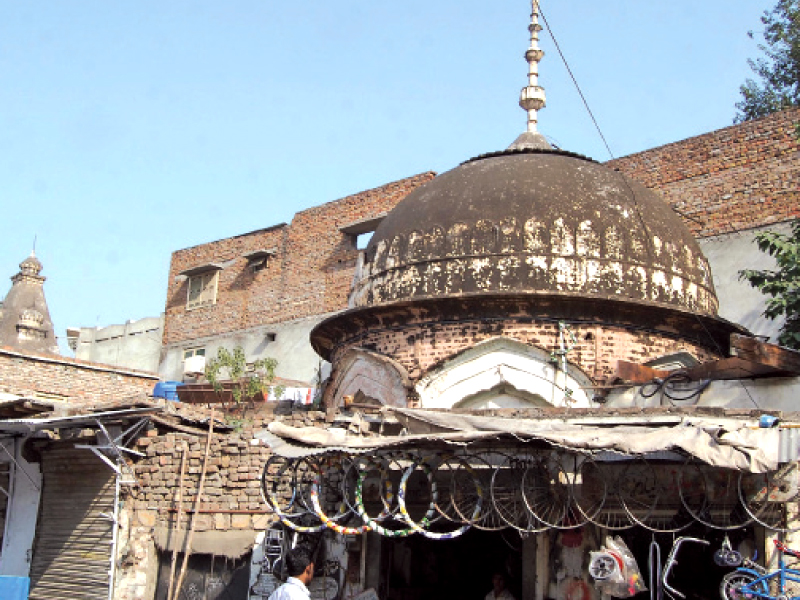
In the battle between commercialisation and the preservation of national heritage, the former almost always seems to win. The garrison city of Rawalpindi is home to numerous pre-partition historical sites that have been converted into commercial ventures over time.
One such building is the Singh Sabha Gurdwara, located in the Bagh-e-Sardaran area of Rawalpindi which has been an abode of the city’s police for a long time. The gurdwara was used by the Sikh community of the city before partition and was taken over by the Auqaf Department afterwards for preservation as a historical site.
In reality, parts of it were rented out for commercial purposes by the department whereas some were encroached upon.
According to a police official, the special branch of city police established its offices in the gurdwara since many years without paying any rent. “It’s the responsibility of the auqaf department to have the site vacated from the police, however, the authority has failed to do so and hasn’t even collected a mere Rs2000 rent,” said an official.

Beside the gurdwara, several other Hindu temples in the area were confiscated and rehashed as businesses. Haji Ajmal, a 65-year-old shopkeeper and a local resident, told The Express Tribune that after partition, his forefathers moved into the city and they have been residing here ever since. He said the entire Bagh-e-Sardaran area has been converted into commercial ventures except for a few temples and the gurdwara which has been encroached upon by the police or influential locals.
Ajmal said the only building that remains from the original design of the area is the government school.
DSP Special Branch Malik Irshad, when contacted, confirmed that they had established their office there a long time ago but claimed that they were paying the rent. Irshad said they had moved into the building after necessary approval by the Auqaf Department and it was wrong to accuse them of possessing the property illegally. “Sometimes we are unable to pay rent due to financial constraints in the entire police department but it is not a routine practice,’’ he claimed.
Muhammad Ismail, a local trader whose shop is located adjacent to a temple, said that after partition his forefathers established a shop here and have been regularly paying rent to the Auqaf Department. “Currently this temple is being used as a store for my shop’’ he added.
Rawalpindi Auqaf Department Assistant Administrator Muhammad Yousaf, said the department has been receiving monthly rent from everyone who is liable to pay.
He said the annual rent obtained from Rawalpindi district is Rs10 million, which is spent on the facilitation of the Sikh and Hindu communities when they visit the religious sites in Pakistan during special festivals and dates.
Published in The Express Tribune, August 19th, 2013.





1731062031-0/Express-Tribune--(5)1731062031-0-270x192.webp)
1731065030-0/Untitled-design-(26)1731065030-0-270x192.webp)


1731057827-0/Untitled-design-(25)1731057827-0-270x192.webp)
1731054442-0/BeFunk_§_]-(53)1731054442-0.jpg)






COMMENTS (1)
Comments are moderated and generally will be posted if they are on-topic and not abusive.
For more information, please see our Comments FAQ